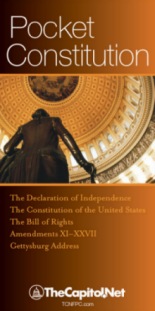Presidential Transition Act: Provisions and Funding (CRS R46602)
The Presidential Transition Act of 1963 (PTA) authorizes funding for the General Services Administration (GSA) to provide suitable office space, staff compensation, and other services associated with the presidential transition process (3 U.S.C. §102 note). The act has since been amended in response to evolving understandings of the role of the government in the transition … Read more



